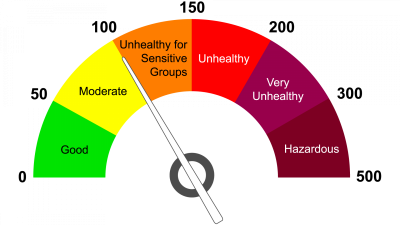
The Air Quality Index (AQI) is a measurement used to report daily air quality. Employed by most government agencies, it helps communicate to the public as to how clean or polluted your air is, how polluted it is forecast to become and associated health effects that might be a concern. Based on ambient concentration levels of different pollutants and their impact on human health, the National Air Quality Index in India has six categories: good, satisfactory, moderately polluted, poor, very poor, and severe.
Air quality index (AQI) is used by government agencies to communicate to the public how polluted the air currently is or how polluted it is forecast to become. AQI information is obtained by averaging readings from an air quality sensor, which can increase due to vehicle traffic, forest fires, or anything that can increase air pollution. Pollutants tested include ozone, nitrogen dioxide, sulphur dioxide, among others.
Public health risks increase as the AQI rises, especially affecting children, the elderly, and individuals with respiratory or cardiovascular issues. During these times, governmental bodies generally encourage people to reduce physical activity outdoors, or even avoid going out altogether. The use of face masks such as cloth masks may also be recommended.
Different countries have their own air quality indices, corresponding to different national air quality standards. Some of these are the Air Quality Health Index (Canada), the Air Pollution Index (Malaysia), and the Pollutant Standards Index (Singapore).
Credit : Wikipedia
Picture Credit : Google




